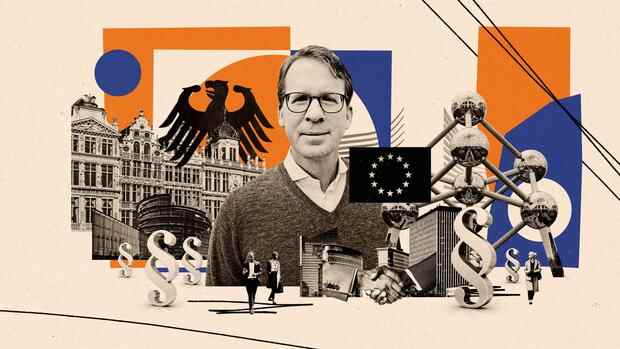The good news first: last week, the EU agreed on the outline of a new energy market with astonishing noise. A system that was created over decades is to be rebuilt within a few weeks. It’s a risk, but it shows that Europe remains capable of making decisions, despite Russian President Vladimir Putin’s attempts to paralyze the EU with a gas embargo.
Now the bad news: Europe’s fight against the energy crisis is dangerously lopsided. Governments and the EU Commission primarily use their political energy to design market interventions. Surprisingly little occurs to them about how the energy supply can be expanded.
It should be obvious that political therapy that focuses primarily on alleviating symptoms cannot be successful in the long term. Ultimately, the crisis can only be overcome if the scarcity that caused the price shock in the energy market is eliminated.
The federal government acts contradictory
The German government is partly responsible for this imbalance, even in the crisis it is sticking to energy policy dogmas and getting tangled up in abstruse contradictions. Nuclear power is undesirable – unless it is imported from France. “Fracking gas” is devil’s stuff – unless it has previously been shipped across the Atlantic in liquid gas tankers.
Top jobs of the day
Find the best jobs now and
be notified by email.
One must be able to afford to make energy sources taboo, but Europe cannot do that. Many citizens already fear for their existence, and the hardest months are yet to come. The shorter the days and the lower the temperatures, the greater the unrest among the population. On September 4, 70,000 Czechs marched through Prague, a harbinger of what could be looming in other European capitals.
>> Also read here: “Service for the Environment and the Climate” – How the gas shortage gives the supporters of fracking a boost
The understanding of Germany’s no-go policy is correspondingly low in the EU. No lifetime extension for German nuclear power plants, not even a stretched operation of a few months, instead the rotten compromise of keeping two reactors ready as an “emergency reserve”. It is similar with gas production. Any serious discussion about what technical possibilities there are for expanding production and what risks are manageable is suppressed.
The bottom line is that the strategic mistakes made by German energy policy over the past two decades are only being corrected half-heartedly. Yes, the expansion of renewable energies should finally be promoted. But to meet short-term needs, the traffic light coalition can think of nothing better than turning on coal-fired power plants. Germany is becoming a scumbag in the middle of the continent – and that under a Green Economics Minister.
What Europe needs is described by the energy experts at the Bruegel economics institute in Brussels as a “grand bargain” – a “big deal”. And the impetus for this big deal must come from Germany. If Berlin were willing to break political taboos, the pressure on other European countries would also increase. Take the Netherlands, for example, which, for domestic reasons, is refusing to expand its own gas production, even though it has large reserves.
Instead, the EU states are blocking their own energy supply instead of forging an energy union that deserves its name – and could make Europe independent of the blackmail attempts of authoritarian states.
More: Europe is facing a difficult winter, Russia permanent infirmity
